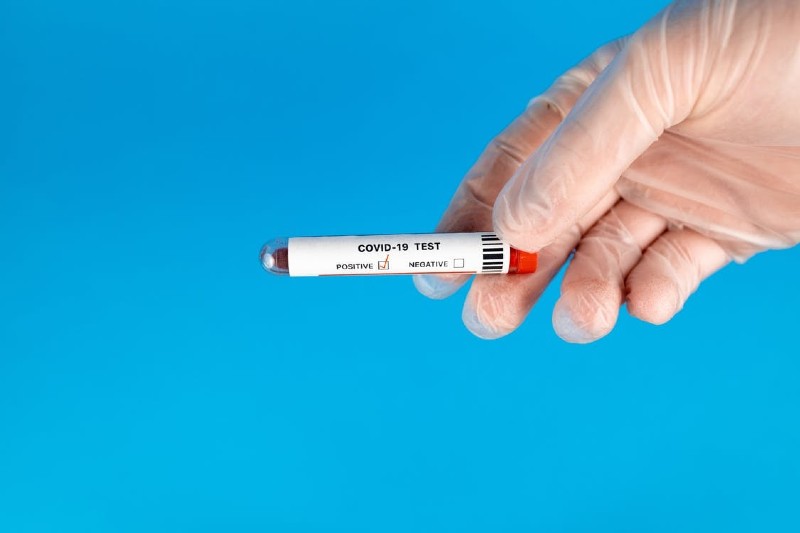No products in the cart.
How Accurate are Rapid COVID-19 Tests?

Los Angelans are looking for ways to keep themselves and their loved ones safe during the pandemic as cases surge and vaccine availability remains uncertain. As rapid COVID-19 testing continues to be embraced by employers and schools as part of their safety strategies, many are wondering how accurate they really are.
Today, we break down the latest information available about the reliability of these tests.
How viruses are detected
In order to better understand what makes a COVID-19 test accurate or not, you first need to know what viruses are and how tests detect them.
Viruses are tiny germs composed of genetic information coated in protein. They operate by invading living, normal cells to multiply. As a virus replicates, the living cells may be killed, damaged, or changed in the process.
Different viruses target different body systems. COVID-19 initially targets the upper respiratory system, but can quickly spread to the lungs and other body systems, affecting the heart, brain, and other organs as well.
Some people may have immune systems that can effectively fight off the virus without medical intervention, preventing an infected person from showing severe symptoms.
However, it is important to note that even people who do not present severe symptoms are not 100% immune from damage caused by the virus and can develop lung lesions or other health issues.
Diagnostic COVID-19 tests (which determine if someone is currently infected) work by detecting either the virus’s genetic material or its protein coating. The RT-PCR COVID-19 test, a diagnostic laboratory test considered the “gold standard” in terms of accuracy, is designed to detect the genetic material of COVID-19.
Types of rapid tests
While the standard RT-PCR is the most accurate test, it needs to be processed in a lab and may not return results quickly. Given the highly contagious nature of COVID-19, fast turnaround times are essential to identifying those infected so that they can self-isolate.
Read on for more information about rapid tests designed to address this issue.
- Rapid antigen tests
- Fastest tests available, returning results in as little as 15 minutes with no laboratory processing required
- Detects viral proteins
- Less accurate than RT-PCR tests
- Rapid RT-PCR test
- Results returned in as little as 30 minutes with no laboratory processing required
- Detects genetic material of the virus
- More accurate than rapid antigen testing
What affects the accuracy of tests?
There is no such thing as a medical test with 100% accuracy. Some factors that may affect test accuracy include:
- Incorrect collection of sample: If swabs are not done correctly, they may not reach the areas where the viral cells are located. Studies show that when someone gets tested can contribute to incorrect results – for example, if an antigen test is taken from an infected person who has had symptoms for 5 days or longer, there may not be sufficient antigens left in their system for the test to detect. Samples of people without infections may be accidentally contaminated during the collection or analysis process.
- Sample deterioration: If samples are exposed to temperatures outside of a certain range before they can be analyzed, the test may not be able to detect any material. There may be other conditions that prevent the chemical reactions necessary to obtain results from occurring.
How to get rapid COVID-19 tests
Currently, your best chance at accessing rapid testing in L.A. is through medical professionals. L.A. County testing sites utilize PCR tests, so you would need to contact your healthcare provider or a private clinic advertising rapid test access.
You may not know that the onsite medical service providers utilized by businesses to test employees also may offer the same services to households. With a service such as Concierge MD LA, you can book an appointment online for a nurse to visit your home, administer rapid tests to up to 5 people, and provide results-based advice.
This option may be particularly attractive to those with vulnerable persons in their household, due to the significantly reduced exposure risk by avoiding testing centers, as well as the convenience of having the entire household testing at once regardless of age.
In December 2020, the FDA authorized (for emergency use) the first rapid antigen test kit for use by the general public. Called Ellume, the test will be sold through retail pharmacies like CVS.
Although the exact debut of the test in stores is unclear, peak production of the tests is expected to be reached by the end of March 2021, so you can expect to see them on shelves soon. The test is expected to eventually be priced at $30 per kit, though it has been acknowledged that they may initially cost far more until production can fully meet demand.















Leave a Reply